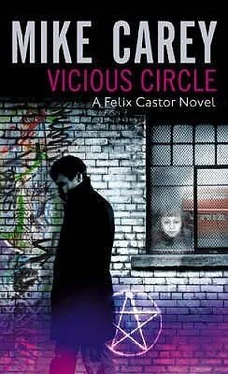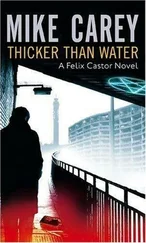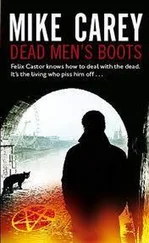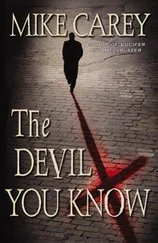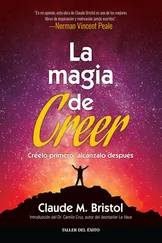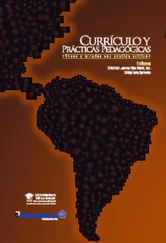Well, even if I took the job I wasn’t signing on to give them relationship therapy. No sense in worrying about it.
I went back to the sprawl of objects on the desk, but I knew as I stared down at them that I wasn’t ready yet. I needed to fortify myself for that particular journey.
Grambas looked up from his sudoku book as I walked into the café. ‘So,’ he called out, tucking his pen behind his ear, ‘you got a job, Castor?’
I shrugged. ‘Maybe. I told them I’d think about it.’
He wiped his clean hands on his dirty apron. ‘Yeah,’ he commiserated, ‘must be tough, your slate being so full. Not knowing whether or not you can squeeze anything else in . . .’
‘Double coffee,’ I grunted. ‘To go. Hold the sarcasm.’
As he was pouring the thick black Greek coffee into a styrofoam cup, Maya walked in with a plastic washbowl full of chipped potatoes. ‘Castor’s in a sour mood,’ he told her.
‘Yeah,’ she said, ‘I knew that.’
‘You knew it?’
‘Sure.’
‘How’d you know it?’
‘He was awake.’
I got out of there before they could start doing old music-hall numbers. The rain was letting up so I took the coffee and my Abbie-hangover up to the bridge on Acton Lane, where there’s a bench that gives a view out over both the railway cutting and an overgrown, factory-backed stretch of the Grand Union Canal. Call me a hopeless romantic, but that vista appeals to me somehow: London with her pants down, but still trying to keep her dignity.
I sat and sipped the hyper-caffeinated sludge, trying to rein in my black mood while bringing my nerves’ responsiveness up to a point where it might be dangerous to drive. The two goals were probably mutually exclusive, but in the absence of whisky the coffee was what I felt I needed right then.
The painful intensity of Abbie’s residual emotions had taken me by surprise. Okay, psychologically speaking, teenagers are perfect storms: when they’re sad, they’re very, very sad. But still . . . an attractive girl from an affluent middle-class family? Parents who seemed to dote on her, and clearly couldn’t cope with her loss? What was her tragedy? What had made that tide of misery well up inside her to a point where it overflowed into her toys and left a residue that wouldn’t fade?
I wanted to know. And I guess, in the end, that was why I’d said maybe instead of no.
I finished up the coffee, which didn’t seem to have helped much, and headed back to the office. I could leave this until later, but it was on my mind now. I might as well find out how far Abbie’s orphaned treasures would take me. I wasn’t going to be thinking about much else if I put it off.
With the door closed and locked and the phone disconnected at the wall, I threw off my coat and sat down at the desk. I put my whistle down on my right-hand side, but I wasn’t ready yet to start to play. First I had to remind myself of what I was fishing for.
I touched the doll gingerly, with the tips of my fingers, and pricked up the ears of my soul. Dead Abbie’s sorrow was there again: an endless looped tape of long-ago despair, trapped behind the painted-on smile and the oddly flattened shape that time and circumstances had given to the rag-stuffed body. This time I rode with it for a while longer, paying closer attention to the nuances and the expression. With my left hand, I picked up at the same time the cloisonné hair slide which looked to be of more recent vintage than the doll. It had a different resonance, but still in the same general key of inexpressible sorrow.
After five minutes or so, I set both things down, picked up my tin whistle and put it to my lips.
The opening note was low, and I held it for a long time. A second note followed, equally sustained, but then when you thought it might fade it opened out into a plangent trill that finally kicked the tune into gear. It wasn’t a tune I’d ever heard before, nor one that I was consciously composing as I played. My mind was as passive as I could make it, just resonating with the echoes of Abbie’s misery that were still in my head. I was turning her into music. Describing her in the medium I knew best. Putting out a psychic APB: have you seen this girl?
In spiritualist circles, this kind of thing usually gets called a summoning: but people in my business just call it the magic lasso. It’s the first phase of an exorcism. Before you can send a ghost away, you have to bind it; wrap your will around it like duct tape, although that’s actually a very unpleasant image and I wish I hadn’t thought of it. In any case, I was telling Abbie, wherever she was, that she had to dance to my tune now. I was telling her to come to heel.
There were two good reasons why this might not work. The first was that I just didn’t know her well enough. I’d never met her, in life or in death, and so the music was incomplete – just an unfinished sketch in sound, based on the emotions I’d sensed in the things she used to own. Those emotions were strong, but they were only a single piece from a huge jigsaw puzzle: what I was doing was analogous to trying to intuit the entire picture from that one piece, without the benefit of the box lid.
The second reason was that she could well be too far away in any case. No summoning is going to work if the ghost doesn’t hear it, and I’d never done this before for a ghost who wasn’t right there in the same space as me.
But the rules are different in all sorts of ways once you’re dead. What’s space? What’s distance? After a few moments, I felt a tremor of response – like a vibration on some strand of a web that I was spinning in the air, invisibly, all around me. I tried to keep my own emotions – satisfaction, excitement, unease – in check as I built that response into the tune, making my approximation of Abbie a little stronger; pulling her in, calling her to me. The vibration became infinitesimally more marked, more insistent.
And then, in an instant, it was gone.
Dead, blank, empty air surrounded me, like the moment after the fridge stops humming and you think the silence is a new sound.
I skipped a beat, swore under my breath, started up again. The music came more readily this time. I had a better grasp of it now, and so I was aiming better: pitching my tent where I knew she’d be.
Again, the most tenuous and hesitant of tugs on the web of sound – from over my left shoulder, which was away to the south-west somewhere. I guess direction isn’t any more meaningful than distance, but the sense of the pull coming from that physical quarter was very strong.
But again, when I reached for it, when I tried to move my mind or my soul out onto that part of the web, came the sudden, instantaneous collapse – followed by a great deal of nothing at all.
A suspicion was waking up in the back of my mind, like a hibernating bear roused too early and in a foul mood. But God forbid I should jump to any conclusions. I gave it a rest and filed some long-dead paperwork to get my mind back into neutral.
Half an hour later I tried again, building from first principles. I started with the doll just like before, bracing myself as I prepared to dip first my toe, and then the rest of me, into that cold ocean of unhappiness – but the tide was out. This time when I held the unlovely toy in my hands there was nothing there: no emotional trace at all. Amazed and disconcerted, I picked up a teddy bear, a pair of trainers, a book. Finally I buried my hands in the sprawl of teenage treasure trove, fingers spread wide, touching as many different things at once as I could manage. They were all cold and inert.
And now it was the conclusions that were jumping on me.
That just couldn’t happen. The residual emotions we leave in the things we touch aren’t like fingerprints: they can be overlaid with stronger, later impressions, but they can’t be wiped clean. Or at least, that’s what I’d always assumed. But somebody had just done it: killed the psychic trail, pulled the rug out from under me and left me sitting on my arse in the middle of nowhere. And once again I had to admit to myself that I didn’t have any idea how that could be done.
Читать дальше
